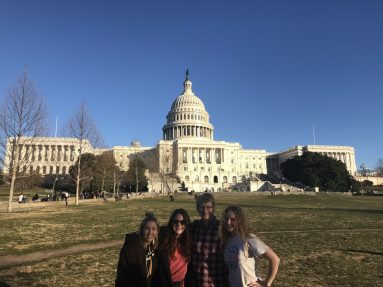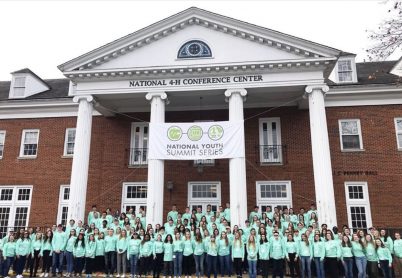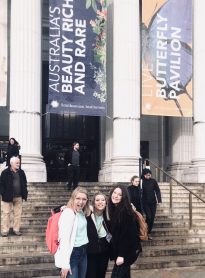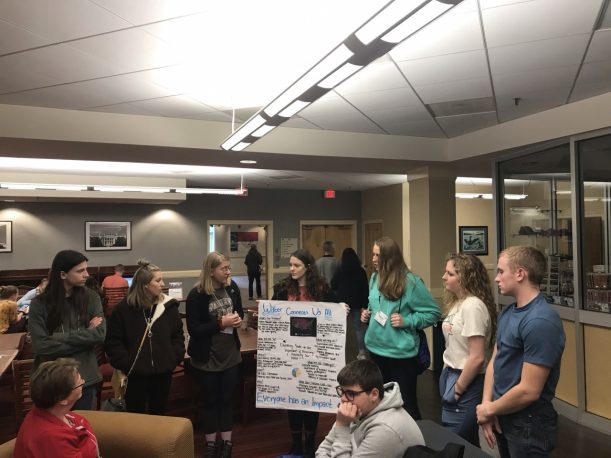Student associates involved in Waukee APEX’s Animal and Veterinary Sciences course had the opportunity to become certified as Teen Facilitators in the National 4-H Council’s Honey Bee Challenge. The purpose of the training was to become certified to teach over 500 students in the Des Moines metro area about the importance of pollinators. Caitlin Henriksen, Waukee APEX student associate, explains “This type of training is important for Agricultural education in Iowa. Not many schools have agriculture programs. Outreach like this allows youth to understand important topics that affect their community, and it encourages them to make a change. By having a target audience of younger school children, the material is more effective because they are more likely to develop new behaviors at a young age.”
As the team began wrapping up their pollinator project, another opportunity presented itself: the chance to travel to Washington DC and attend the National 4-H Summit on Agri-Science. Excitedly, the team began preparations, and in January Caitlin Henriksen, Felicia Williams and Kenzie Hermason traveled with Waukee APEX instructor, Cindy Snell, to Washington DC where they attended the conference with delegates from over 30 states as well as Puerto Rico. They stayed at the National 4-H center where they participated in workshops, listened to keynote speakers, and worked together on a project to solve a problem in their local community.
Caitlin Henriksen explains, “I attended a total of six workshops during my time in DC. I learned everything from biosecurity in animal science to how to be an advocate in the community for agriculture education. This was especially important to me, because unlike other delegates, I am not a part of 4-H or FFA, and I come from a more urban background. This allows me to bring a different perspective and voice to the future of agriculture.” Other workshops dealt with topics ranging from DNA research, dairy science, and food security in third world countries. These workshops showcased the many topics and fields of agriculture that many people are not exposed to.
The team felt that one of the most important parts of the summit came when they were tasked with action planning. Together they narrowed down a problem in their community and brainstormed ways to bring awareness to the issue. The focus of the Iowa team was water sustainability and conservation. Iowa is a land-locked state, which means that the waste and erosion in the Des Moines waterways travel all the way to the ocean. This affects water quality and sea life. The team felt that since their pollination outreach was such a success, they would use the same format and apply it to this problem. The overall goal/solution became educating youth on the importance of preserving and protecting our state’s water.
This month, Caitlin Henriksen will be applying the skills that she learned during her time in Washington DC as she attends additional training at Iowa State University. This training will allow Caitlin to become a teen leader in the Water Connects Us All Challenge. Caitlin, along with 24 other Iowan teens, will be expected to master the curriculum in order to further educate youth in the area. Cailtin expressed, “I am a person with a passion and a voice, who is willing to take the extra steps to make a change. This is something our world needs now more than ever.”
Caitlin attributes her unique opportunities and successes to her involvement in the Waukee APEX program. “APEX opened doors of opportunity for me and fueled interests that I already had in place. Now that I am an APEX alumna, I see my passions and voice growing stronger with each continued experience that comes my way.”





